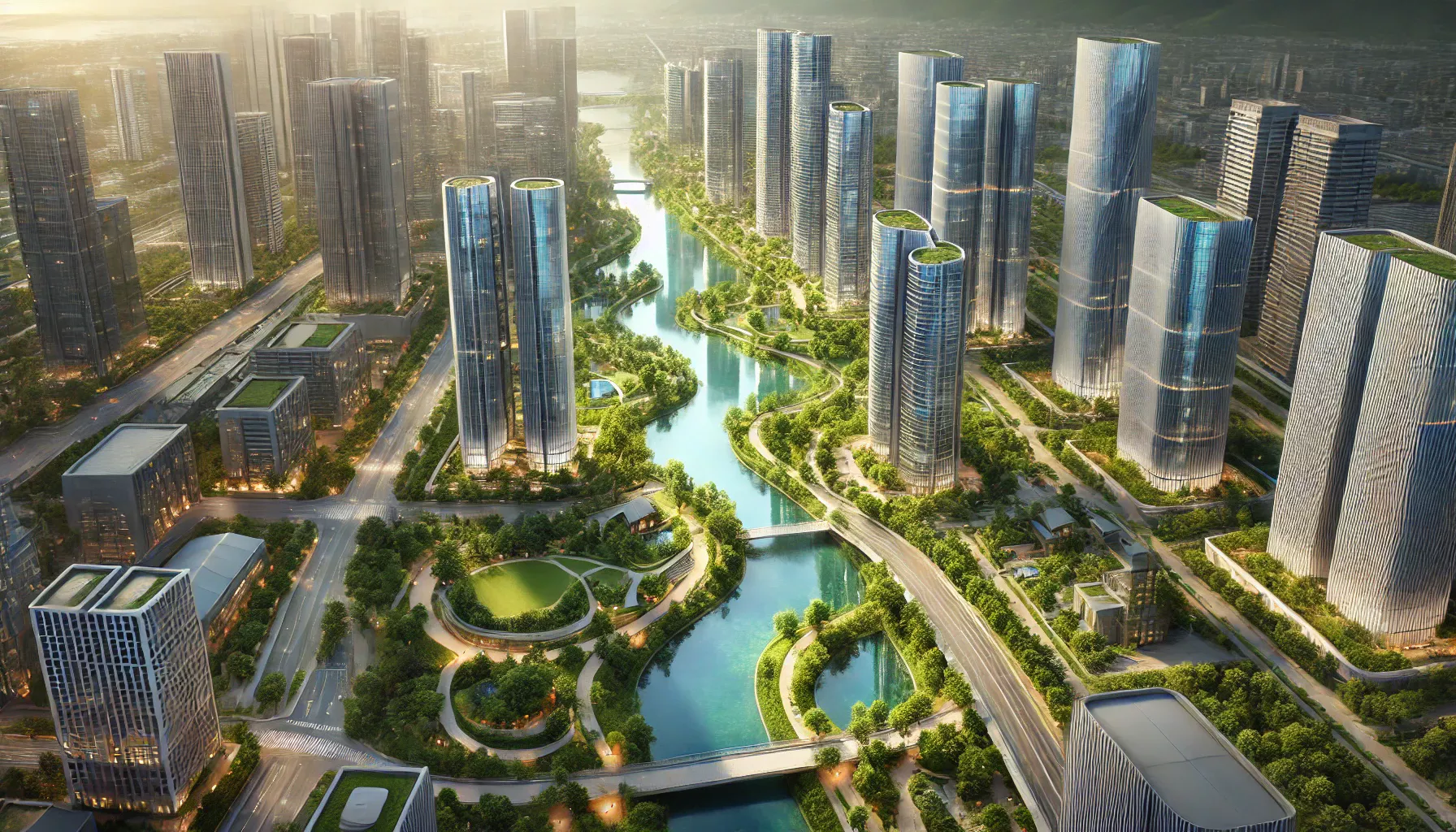The Rise of the Smart and Sustainable City, Songdo
In an era where urbanization is accelerating and environmental challenges loom large, smart cities offer a glimmer of hope for sustainable living. One such city leading the charge is Songdo, South Korea. Built from the ground up on reclaimed land, Songdo is a testament to what’s possible when technology, innovation, and sustainability converge. This article dives into the story of Songdo, a smart city designed to be efficient, eco-friendly, and a model for future urban planning.
What is a Smart and Sustainable City?
A smart and sustainable city leverages technology and data to enhance the quality of life for its residents while minimizing environmental impact. Key features include:
- Connectivity: IoT (Internet of Things) systems for real-time monitoring and efficient management of resources.
- Eco-friendly design: Integration of green spaces, renewable energy, and sustainable infrastructure.
- Quality of life: Improved public services, reduced traffic congestion, and efficient waste management.
Songdo embodies all these principles, making it a living laboratory for smart urban living.
The Vision Behind Songdo
Located near Incheon, South Korea, Songdo International Business District was conceived as a greenfield project to create a futuristic city:
- Built from scratch: Developed on 600 hectares of reclaimed land along the Yellow Sea.
- Strategic location: Positioned close to Incheon International Airport, making it a global business hub.
- Sustainability at its core: Designed to reduce carbon emissions and energy consumption while prioritizing walkability and green spaces.
Technological Innovations in Songdo
Songdo’s advanced technology infrastructure is a benchmark for smart cities worldwide.
1. Smart Infrastructure
- Centralized monitoring: The city’s operations are overseen by a state-of-the-art control center, ensuring efficient energy use, traffic flow, and public safety.
- IoT integration: Sensors throughout the city collect data on waste management, air quality, and utilities for real-time adjustments.
2. Transportation
- Public transit focus: A robust network of buses, subways, and bike paths minimizes reliance on cars.
- Electric and autonomous vehicles: Songdo prioritizes low-emission transport, including EV charging stations and plans for self-driving cars.
3. Waste and Resource Management
- Automated waste disposal: A pneumatic system transports waste directly from homes to treatment facilities, eliminating the need for garbage trucks.
- Energy efficiency: Smart meters and renewable energy sources like solar and wind power reduce overall consumption.
Sustainability Features of Songdo
Songdo’s sustainable design ensures it remains environmentally friendly while supporting modern living.
- Green spaces: Over 40% of the city is dedicated to parks and open areas, including the 100-acre Central Park, inspired by its namesake in New York.
- LEED-certified buildings: Most structures in Songdo adhere to strict environmental standards for energy efficiency and reduced water usage.
- Water management: Advanced systems recycle wastewater and reduce demand on natural water sources.
Life in Songdo: A New Urban Experience
Residents of Songdo benefit from a lifestyle that blends convenience with sustainability:
- Smart homes: IoT-enabled appliances and systems optimize energy use and enhance daily living.
- Healthcare access: Telemedicine services and integrated healthcare data make medical care more efficient.
- Education: World-class schools and universities attract global talent.
Challenges and Criticisms
Despite its achievements, Songdo faces challenges that highlight the complexities of building a smart city:
- Population growth: The city’s original goal of housing 300,000 residents has yet to be fully realized, with current numbers lagging behind.
- Cost barriers: The high cost of living and advanced infrastructure can deter some potential residents.
- Community building: Songdo has been criticized for feeling sterile, with less organic social interaction compared to traditional cities.
What the Future Holds for Songdo
Songdo continues to evolve as a blueprint for smart cities worldwide:
- Global influence: Urban planners and governments study Songdo to adapt its successes to their own regions.
- Innovation hubs: With tech companies and research institutions setting up in Songdo, the city remains at the forefront of innovation.
- Sustainability advancements: Continuous improvements in renewable energy integration and AI-driven urban planning will enhance its sustainability.
Lessons from Songdo for Future Smart Cities
Songdo’s experience provides valuable insights for creating more smart and sustainable cities:
- Plan for people: Technology is a tool, but a city thrives when it fosters human connection and community.
- Balance growth and sustainability: Prioritize eco-friendly development without compromising livability.
- Adaptability is key: Cities must evolve with changing technologies and societal needs.
FAQs about Smart and Sustainable Cities
What makes Songdo a smart city?
Songdo integrates IoT, centralized monitoring, and advanced resource management systems to enhance efficiency and sustainability.
Why is sustainability important in urban planning?
Sustainability reduces environmental impact, conserves resources, and ensures a better quality of life for future generations.
How does Songdo manage waste?
A pneumatic system collects and transports waste directly to treatment centers, minimizing emissions and increasing efficiency.
Can Songdo’s model be replicated worldwide?
While Songdo serves as inspiration, each city needs to adapt smart city principles to its unique cultural and geographic context.
What are the main challenges of smart cities?
Challenges include high initial costs, maintaining inclusivity, and ensuring organic community development.
Conclusion
Songdo represents a bold vision for the future of urban living, where technology and sustainability merge to create a smarter, greener world. While challenges remain, its achievements serve as a beacon for what’s possible in modern city planning. As cities around the globe look to become more sustainable, Songdo offers invaluable lessons on innovation, community, and environmental stewardship.



0 Comments